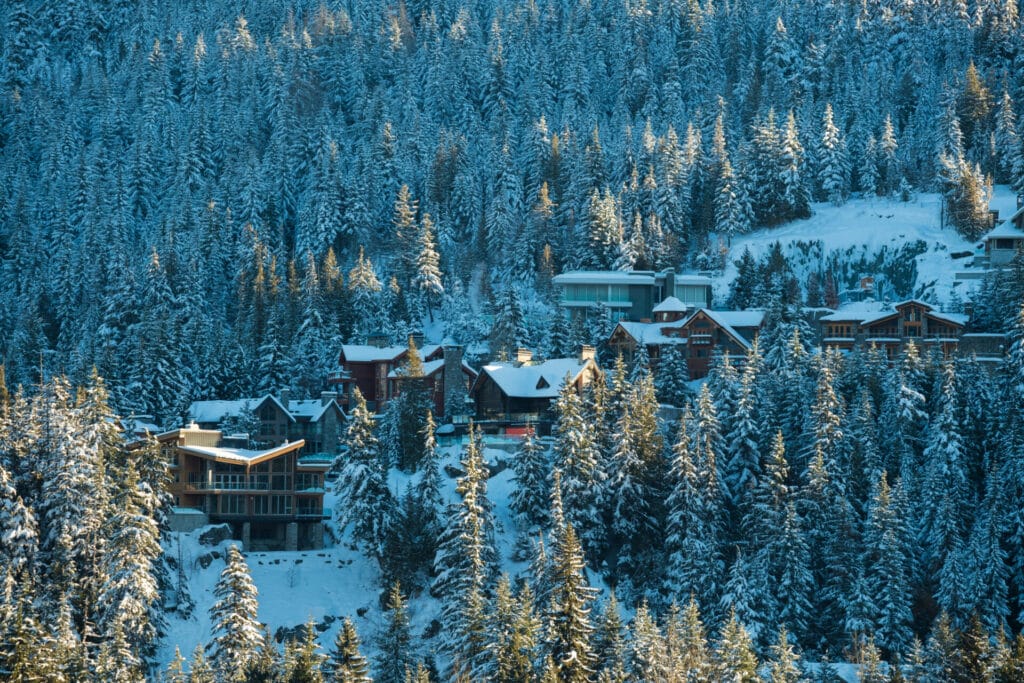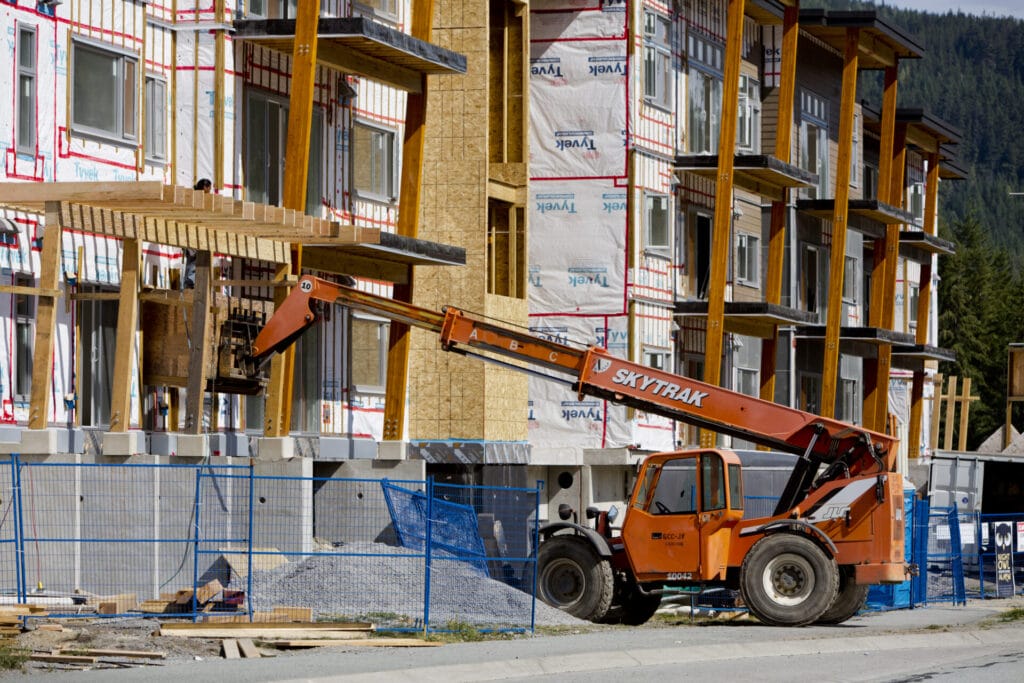Council Roundup from Tuesday, December 17, 2024
Looking to get caught up on the Tuesday, December 17 Council Meeting? We’ve pulled together some key stories, including:
- Interim Housing Report spells out Whistler’s anticipated future needs
- Council denies developer request to increase price on new employee-restricted townhomes
- Two engagement options for updated building bylaw project
For all the details, check out the recording of the full meeting on whistler.ca.

Thousands more homes needed to meet Whistler’s needs
British Columbia is growing. To ensure that communities can meet future housing needs, the Province is requiring all municipal and regional district governments to file a new Housing Needs Report (HNR) by December 31, 2028 and to update that report every five years. A HNR identifies the number of housing units legislatively required to meet current and anticipated needs, defined by the Province. In advance of the 2028 HNR update, the Province has mandated all local governments to submit an Interim HNR report by January 1, 2025 that identifies the projected number of dwelling units needed in five years and over the next 20 years.
What does that mean for Whistler? As calculated using the BC HNR Calculator, methodology developed by the University of British Columbia and endorsed by the Province, Whistler’s anticipated future needs are:
- Five years – 1,572 dwelling units
- 20 years – 5,639 dwelling units
Moving forward, al local governments are required to update their Official Community Plan (OCP) to include these housing projections. This update is due on December 31, 2025.
According to municipal staff, Whistler’s current identified development projects, zoned projects, and the adoption of the new Small Scale Multi-Unit Housing (SSMUH) Bylaw (mandated by the Province and adopted by Whistler in May of 2024) already allow for the projected housing needs over the next 20 years. However, there were some questions at Council around if those needs continue to grow.
In discussions, Councillor Arthur De Jong said he was concerned the province was effectively mandating long-term growth in Whistler that isn’t supported by its resort operations or existing plans.
“It’s hard for me to compare Whistler with a sprawling suburb like Burnaby or Surrey,” he said. “We are very much a planned community.”
He also noted that there are other constraints to growth, including the terrain, water and sewage capacity. “There’s the resident experience, environmental thresholds – the list goes on.”
Mayor Jack Crompton noted that the province’s mandated growth targets are a significant change of course for the municipality.
“For a community that has thought deeply about those restraints on our own growth, through Whistler 2020 and through our Official Community Plan over the years, this is a challenge to a lot of that,” Crompton said.
Price adjustment turned down for employee-restricted housing development
The developer of the new employee housing project, The Landing at 2077 Garibaldi Way, has been denied a request to amend the Housing Agreement to increase the maximum sale price of their units. The request sought a 16.1 per cent increase per square foot, moving the original cost from $591.53 to $681.53. The sale price was set in May 2022, while the request to raise the price came after the Note to Purchase Deadline of June 21, 2024, as well as following two open houses for the project.
The zoning for the parcel includes 14 new units that were to be sold through the Whistler Housing Authority (WHA) waitlist. The Housing Agreement does consider inflation in final pricing, but the difference between the Core Consumer Price Index (CCPI) and the housing construction index is significant – 4.6 per cent vs. 16.1 per cent. If Council had approved the request, the average cost of a unit at The Landing would have increased from a maximum of $769,697 to $938,411. However, when limited to CCPI, the maximum would be $814,488.
All the employee-restricted units, plus six market units, are complete but are still waiting on occupancy permits. Council voted unanimously against the requested price increase.

Council considers two engagement options for updated building bylaw project
Efforts to modernize Whistler’s Building Bylaw and Plumbing Bylaw, as well as the Fees and Charges Bylaw, took another step forward on December 17, with Council discussing two options for the next phase of the project: engagement with builders and the community.
While much of the bylaw is a standardized template that cannot be amended, approximately 20 per cent of the bylaw can be adapted to a community’s unique set of conditions. To help shape this part of the bylaw, Whistler will engage the building sector to ensure the bylaw reflects Whistler’s needs. These items include fee structure, the Certified Professional Program and limited matters that have been designated to local governments through the Building Code.
Of the two options discussed, staff was in favour of an open engagement process, while Councillor Ralph Forsyth proposed a working group at the Tuesday, November 5 Committee of the Whole meeting. Council and staff discussed the pros and cons of both options.
For example, going with the open engagement process would speed up the process by capturing feedback from a broader audience while also meeting public engagement requirements. The working group option would take longer and cost more, but Council would be assured that the recommendations meet the needs of builder.
In the end, the majority voted for the staff-recommended option, noting the limited scope of what a municipality can adjust within the building bylaw and that it could be executed faster and still generate ample opportunities for input from the building industry as well as all those impacting by the building bylaw. The updated building bylaw is expected to reduce risk, streamline the application process, improve efficiency and compliance, and provide some consistency in permit fees and fiscal sustainability for the Building Department. Engagement will start in early 2025.
